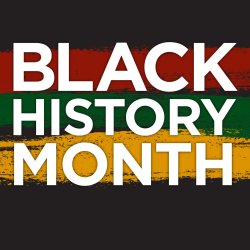“In order for us to discuss today, we must understand yesterday. For today is built on yesterday and tomorrow is built on today,” says Sundiata Ramin, Logistics and Facilities Manager for GRID Mid-Atlantic.
At GRID, our vision is to build a clean energy future that includes everyone and the realization of this goal will rely on our understanding of past and present stories of the people of color living in the communities we serve. The voices and leadership of those on the front lines of these issues are key to creating equitable and lasting solutions.
What we know about the solar industry today is that only 7.6 percent of the workforce is African-American, compared to the 12.1 percent of the general workforce. Another thing we understand is that, because of the history of systemic racism in city planning, under-resourced communities and communities of color disproportionately bear the burden of environmental injustice and climate change.
These are just a few of the reasons why GRID Alternatives Mid-Atlantic is dedicated to equity, inclusion, and diversity. Black History Month is a reminder to not only stand strong on these values, but to continue pursuing them every day of the year through our programming, our hiring processes, and the representation in our leadership.
To celebrate Black History Month we asked our staff to tell us why they believe diversity is important and what Black History means to them. Here’s what they had to say…
"Diversity is important is because it gives you a chance to learn different cultures and different perspectives. Black history, and history in general, is important because if we don’t know where we came from, we don’t know where we’re going."
-Steven Donerson, Multifamily Solar Installer
"This industry is new, and if we don’t take the initiative to be intentional about who we’re giving jobs to, who we’re providing training to, then we’re not going to change anything."
-Kaly Moore, Multifamily Solar Installation Supervisor
"One of the most palpable examples of Black History and diversity is the Dominican Republic’s rich mixture of Black, indigenous, and Spanish cultures. As a person that identifies as an Afro-Latino from that country, Black History Month is an opportunity to celebrate those that have fought for the cultural legacy we have today in the Dominican Republic."
-Andrés Rosario, Community Outreach Manager
Diversity and innovation go hand in hand — if all members of a group share common histories, behave relatively alike, and are content with maintaining the status quo, then the flow of new ideas will stagnate and eventually the group will fall behind others. When focusing attention on black historical figures and stories, students of history are provided a brief glimpse into the successes and challenges faced by disenfranchised innovators.
-Robert Kirby, Commercial Solar Project Manager
"For me, Black History is a living vessel. It is the compass by which I direct my life and fulfill my purpose as a decendent of Africa. All too often, the discussion of Black History by the mainstream is relegated to the civil rights movement and the people who participated in that era. However, Black History encompasses all darker people of the Earth, from Ethiopia to Ecuador."
-Sundiata Ramin, Logistics and Facilities Manager

